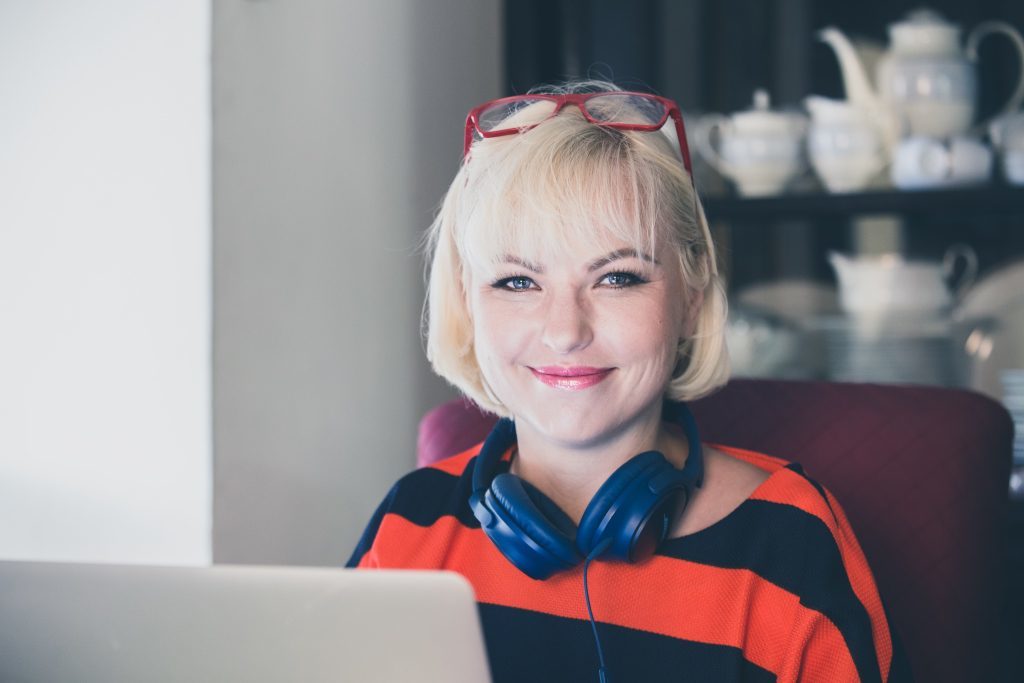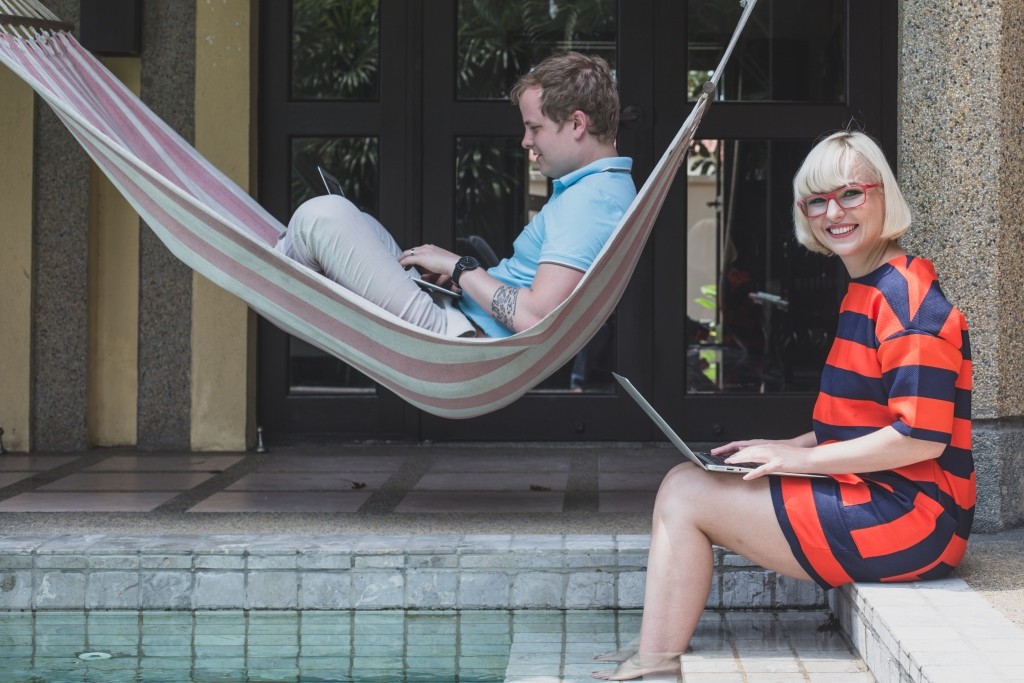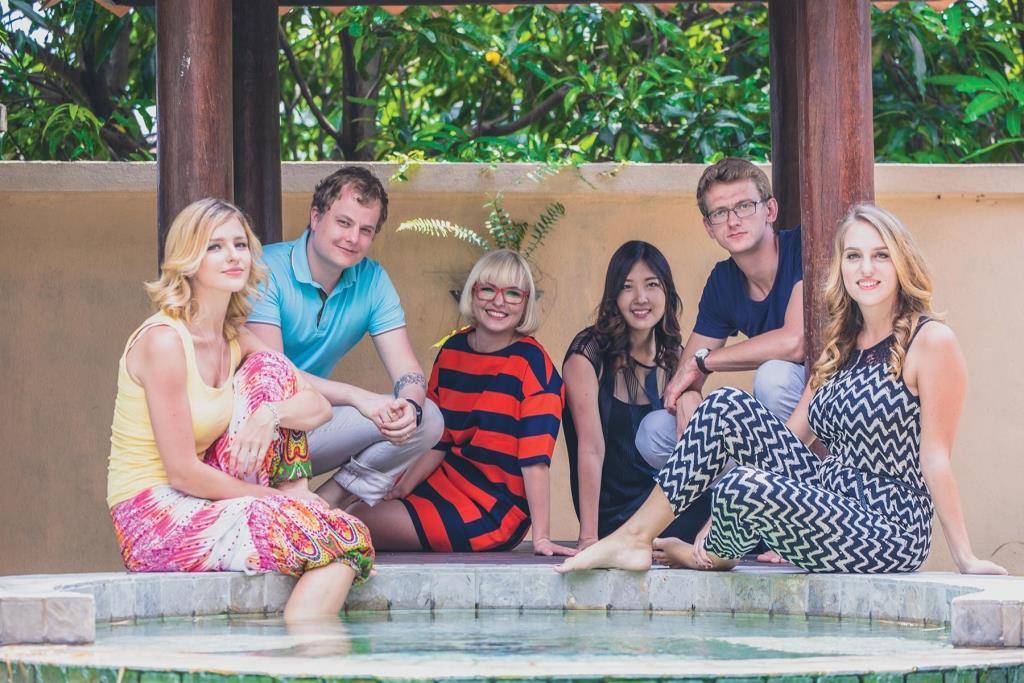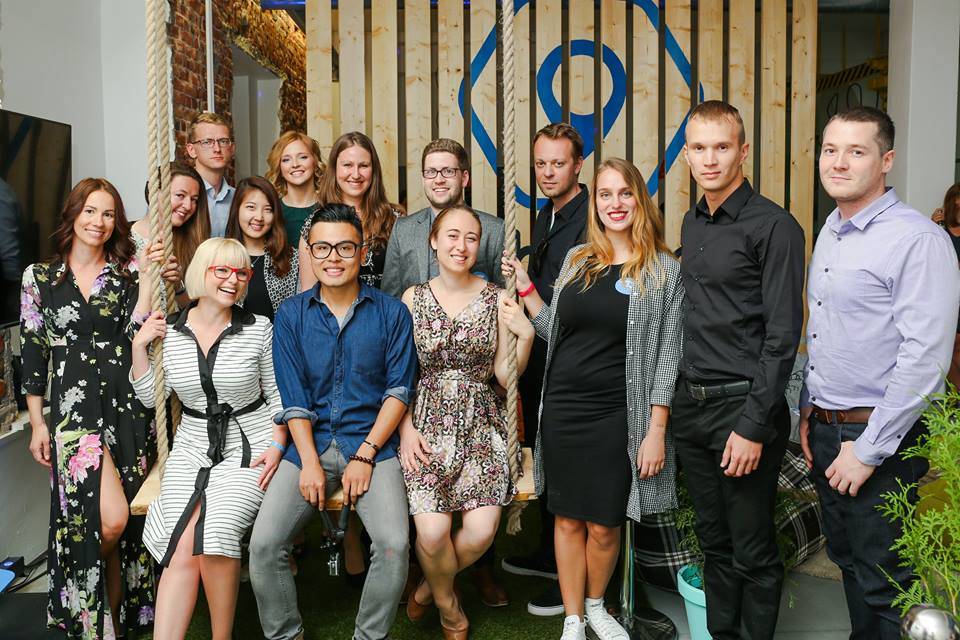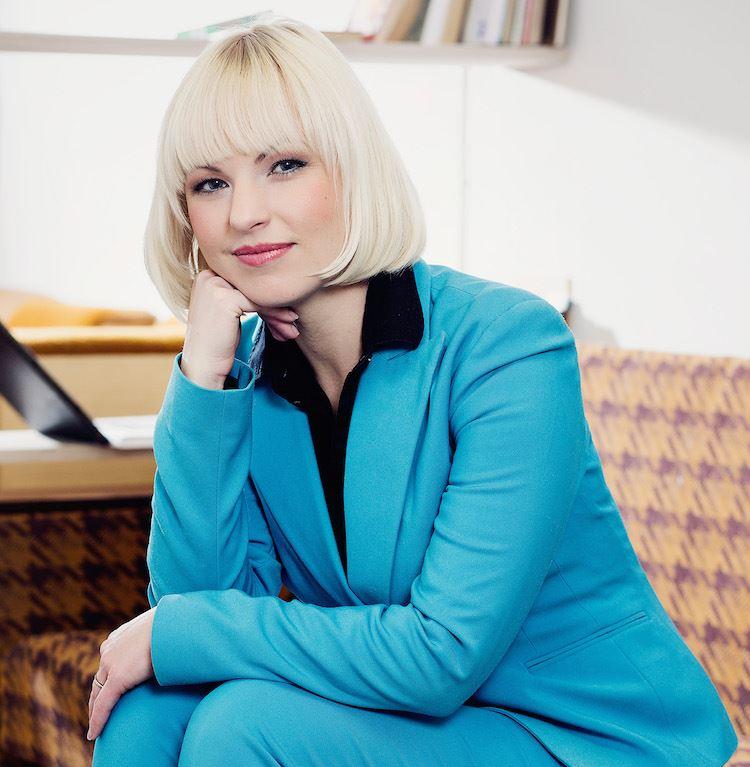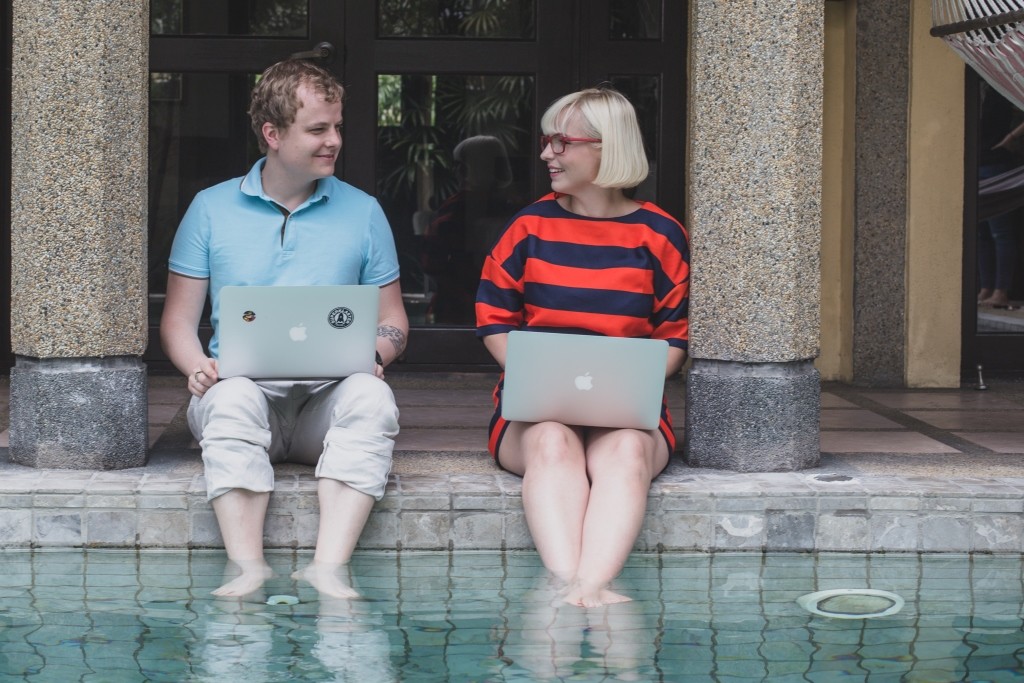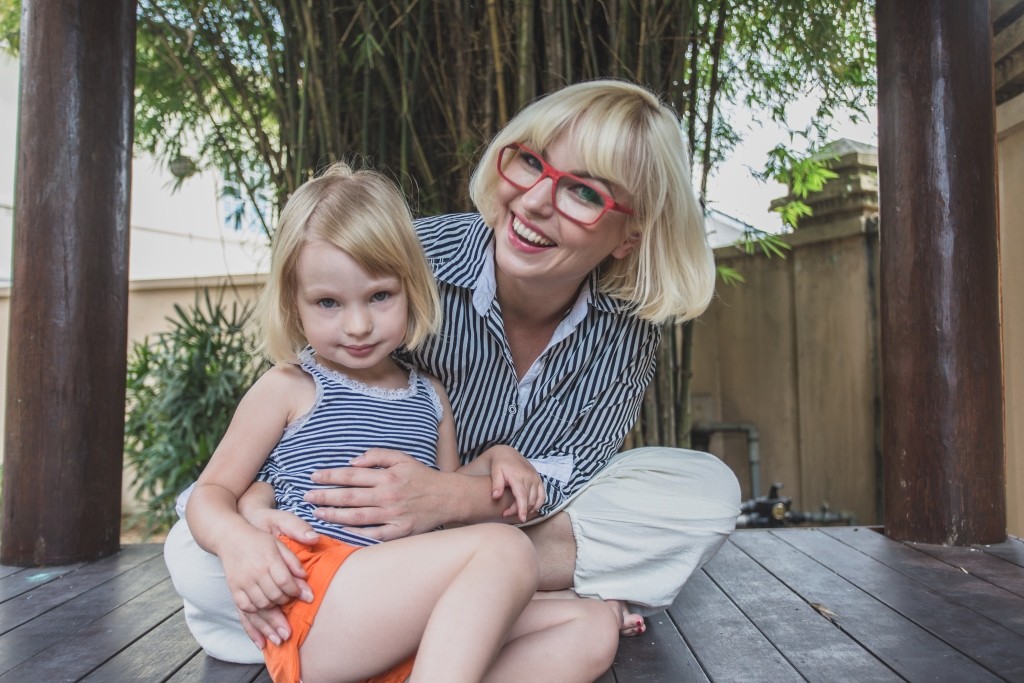Having just raised USD2 million for her company from some of the top venture capitalists in the US and Europe, Karoli Hindriks, the founder and CEO of Jobbatical, is one of the most successful startup entrepreneurs in Estonia.
Raising a round worth more than EUR1 million always draws a lot of attention in the local media, but the news about Jobbatical was in spring 2016 all over international tech media outlets such as TechCrunch, Forbes and Business Insider.
Besides getting the limelight in both old and new media and while attending globally influential events like the Lean In conference at Google Asia, the word “jobbatical” has already made it to Merriam Webster dictionary, being defined as “a short-term post when between jobs in one’s career”.
The industries of the future
The word has recently also made it to the pages of an international publication. “One of the first people I met in Estonia was Karoli Hindriks, the CEO of Jobbatical, a company that blends the concept of a job and a sabbatical, matching employers and talent for short-term jobs that might involve sending a software developer from Sweden to Thailand for a three-month ‘jobbatical’,” Alec Ross, the former head of office for Hillary Clinton, writes in his new book, “The Industries of the Future”.
“I asked Karoli why she and everybody else on the street was wearing reflective clothing, and she told me that when it gets dark, it is Estonian law that all pedestrians wear some form of reflective clothing for safety,” Ross continues in his book. “She smiled and told me that she became an inventor at age 16, creating pedestrian reflectors that could be used as a part of clothing and jewelry, and she now holds several patents and international trademarks for her designs. This was very representative of what I have seen during all of my time in Estonia: extreme order combined with invention and design.”
Hindriks herself did not have to worry about wearing reflective clothing in order to be visible in the slushy winter of Estonia this year since, living the life she preaches, she was on a jobbatical in Kuala Lumpur, Malaysia.
“Malaysia and Singapore are the fastest growing markets for us as there are many great global companies emerging and there is not enough talent locally so we need to import it,” she says. She is sitting in the shade of a tropical tree by a pool that’s teeming with little turtles, in a spacious courtyard of the house that operates as both an office and living quarters for her team.
The team at Jobbatical consists of people from all over the world – Estonia, Italy, the US, South Korea, Hong Kong. “Almost half of the team has been found through the platform itself; I’ve hired six people before actually meeting them.”
It seems the future of the job market that Alec Ross pinpoints in his book, is already here.
Think big, act fast
Matching talented people who want to take a break from their ordinary jobs with companies who are looking for helping hands for specific projects around the world is the shorthand description of what Jobbatical does. Over its first year, 1,200 companies across 40 countries have used Jobbatical and 7,000 job applications have yielded over 300 job matches.
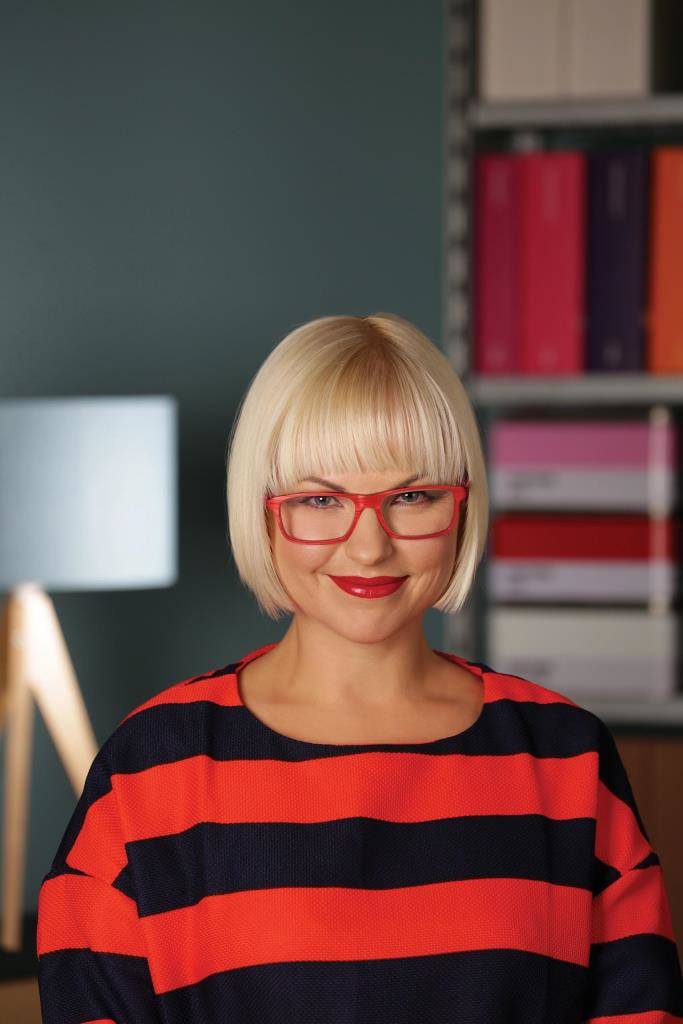 The concept of Jobbatical grew out of several previous experiences. Since 2009 Hindriks had been in charge of bringing FOX International Channels, broadcasting Fox Life, Fox Crime and National Geographic to Estonia and the Baltic states. At some point she felt she had learned all about localising international TV-channels and needed some change. She left FOX and flew to Malaysia, with just her running shoes and books. Within eight days she had read through all her books and done enough running circles around the small island she was staying on to understand she needed more meaning in her time off.
The concept of Jobbatical grew out of several previous experiences. Since 2009 Hindriks had been in charge of bringing FOX International Channels, broadcasting Fox Life, Fox Crime and National Geographic to Estonia and the Baltic states. At some point she felt she had learned all about localising international TV-channels and needed some change. She left FOX and flew to Malaysia, with just her running shoes and books. Within eight days she had read through all her books and done enough running circles around the small island she was staying on to understand she needed more meaning in her time off.
“I would have loved to find a team in Malaysia, whom to help with the skills and expertise in media business that I had been working past seven years, but Jobbatical did not exist back then,” she says. Hindriks managed to find a small Estonian startup who needed her help and flew to San Francisco. “I worked 14-16 hours a day really exploring the startup scene in the Bay Area. This was a great ‘jobbatical’ for me.”
She also applied to Singularity University, a global initiative founded by Dr Ray Kurtzweil and Dr Peter Diamandis, both influential thinkers on the future of tech in Silicon Valley. “I had applied to the Singularity University Graduate Program last winter since a brave little optimist in me said – what the heck, go for it, you’ve got nothing to lose!” she wrote on her blog after finding out the delightful news that she was chosen from among 3,000 candidates. “I will be the first person from my country and the first woman from the Baltic countries to be in the SU Graduate Program,” she revealed.
Geographic location and time zone does not matter anymore
Fast forward four years, and Hindriks reflects that this experience gave her the courage to do really big things, and most importantly, a really good network of people that reaches much further from the sweet embrace of Silicon Valley.
“I noticed that with the new millennial generation, your geographic location and time zone really does not matter anymore. Both friendships and work span borders. Although hardly anyone wakes up in London to think that their next big opportunity is waiting for them in Tallinn, we should open up opportunities for those who are curious and adventurous enough to want to try out new challenges elsewhere,” she explains.
Jobbatical was born in the spring of 2014, when Hindriks’ daughter Maya turned one, as she had promised herself to take at least a year off for the family. “I discovered that for a person like me, having worked for more than 10 years, there was an option to go and pick melons in Australia or take up an internship. I started to wonder that there must be a multitude of people like me who could add more value than that.”
Looking back at how her company started, she admits that they’ve made many mistakes. “Eat your own dog food!” is a good saying by many entrepreneurs that also applies to Jobbatical. There was no pivot but there was a lot of experimentation. Finally, placing the focus on technology paid off. “It really took off in May 2015; the focus was there, the companies and the right people were on board,” Hindriks notes.
“I did not know anything about raising money and no one is likely to give you a manual on how to go about that,” she reflects. Having pitched to hundreds of investors, she now admits that even today she cannot pinpoint a specific pattern besides the fact that the US investors will look further in the future whereas the European ones are more centred on numbers and are keener on how the idea can be monetised.
In the latest round, Hindriks managed to embrace both VC varieties, since Union Square Ventures is based in New York, while the other venture fund, LocalGlobe, is London-based. With this latest investment, Jobbatical have now raised around USD3 million.
“I raised the angel round solely based on my presentation and by making people believe in my vision,” she says in hindsight. “My first investors were from Finland; I still remember that day when I was running in my silk stockings from the ferry to make it to the meeting in mid-town Helsinki.”
The next people on board were the British investors, and only then were the Estonians brave enough to put their money in her venture.
“I was the second woman in Estonia to raise money this way after Kaidi Ruusalepp, the CEO and founder of Funderbeam,” Hindriks claims.
Ruusalepp assumes it all boils down to the passion Hindriks feels about things. “If she’s devoted to a cause, she will put her full energy into it – either for her company, women’s rights or other causes. We both build global startups and we are women with small kids. This simple fact keeps us both motivated – if she can do it, I can do it. She has a leader’s characteristics, ability and the courage to build up a global company. We both bet on the future trends: she’s betting on the trend of changing the status of work; Funderbeam bets on the fact that raising capital will change because technology is eliminating the borders,” Ruusalepp asserts.
How it all started
Believing in new technologies and having the courage to tear down existing borders is what makes many successful people stand out among others. Plus, it takes a lot of perseverance and, above all, a few supportive people to rely on. For Hindriks it was her entrepreneurship teacher in high school; and of course her parents, who would always stand behind her crazy ideas.
“Usually parents would encourage their kids to pay more attention to their studies, but my late dad told me to go to the patent office when I told him about my idea for the student company project,” she says. That was exactly what she did with her soft reflectors, and this was how her first company, Goodmood, took off.
“Usually parents would encourage their kids to pay more attention to their studies, but my late dad told me to go to the patent office when I told him about my idea for the student company project.”
Liis-Katrin Avandi, an Estonian dancing teacher and a good friend from high school, admits that she’s always been amazed how Hindriks can manage to do so many things at the same time while having no complexes to hold her back.
To bring an example of Hindriks’s determination and experimental mindset, Avandi tells a story from several years ago. “As a student entrepreneur, she was invited to give a speech at the European Parliament in Brussels. To get the full attention of her audience she decided to open her speech with a song. And I mean, she can carry the tune but she is no singer! For me that would be an absolute nightmare. But she, of course, pulled it off very elegantly and got 110 per cent attention. This is how she rolls: besides amazing everyone with the initial attention she can then surprise people with her craziest yet doable ideas. She has that X-factor: a specific balance between the form and the essence.”
Hindriks admits that if she gets an idea, she will almost literally drive through a stone wall to reach her goals, as she was lucky enough to be taught to believe in herself. An exchange year as a senior in a US high school in New Hampshire probably helped in shaping her character too. “As I decided to go back to Estonia and continue being an entrepreneur, my classmates must have thought I was completely out of my mind.”
However, a few years later she had no regrets, despite having been an alumna of the Pärnu City Council at the age of 25. She had been elected at the age of 19, as a member of IRL, currently a rather conservative party. She does not deny that she became disillusioned with politics. “You need a cooler nerve and thicker skin to be active in politics on a local level. I’m sure I’ll return some day,” she pauses and adds with a smile, “once I’ve finished changing the world! I will return to politics when I’m independent enough to be dependent on public opinion.”
A politician lost?
Being a person with a cool head, as well as a warm heart, she cannot only shower praise on her homeland. Hindriks can bring many examples from other countries that Estonia might be keen to follow. Among these some obvious examples like Singapore, as well as those who might sound a bit more surprising, like Canada.
“Singapore is a perfectly engineered state: they send their best brains to study abroad with a string attached that they have to come back. If you talk to any government official from Singapore you’ll realise the positive effect of this pattern. We could consistently broaden the minds and horizons of our future generations if every student in Estonia had to go through an exchange program abroad,” she explains.
Having now lived for almost a year just across the border from Singapore, in Malaysia, where Islam is the predominant religion, she has learned a completely different yet valuable lesson. “I have thought a lot about the issues of discrimination and diversity here. Although I’m not a Muslim and I don’t wear hijab, nobody would bother to give me a weird look on the street. Everyone can exist peacefully together.”
“We could consistently broaden the minds and horizons of our future generations if every student in Estonia had to go through an exchange program abroad.”
She gets really excited when she talks about the obvious dichotomy of diversity and discrimination. “I would love to see someone ‘owning’ this topic in Estonia. The way we currently deal with discrimination is totally ridiculous. It’s where we could easily apply a modernised version of the simple theory of Adam Smith: if you know that there are likely to be sanctions for taking your neighbour’s TV, you simply won’t take it.”
“I love following ‘the third culture kids’ – the ones who have moved around a lot since childhood – in our team. The way they think and do things is just completely different; they are just so smart in every aspect of life,” she observes.
In their co-working and living space she’s been immersed to adhan, the Muslim calls for prayers five times a day as part of the local culture. And she’s really happy that her daughter Maya is there with her, so for her many of the barriers that might have held her parents back, albeit these are nothing but mere social constructs to start with, will not even be present.
Family is her rock
Modern technology has already helped a lot with her family setup where both spouses are entrepreneurs and used to constant continent and time-zone hopping. While she’s in Malaysia with her daughter Maya who just turned three, her husband Allan Martinson, the cofounder of Starship Technologies, is based in Estonia and travels back-and-forth on the other side of the world, between London and San Francisco.
Despite not being able to spend much time together, Hindriks is adamant that family is her rock. “The time with your family is when you are actually together, no compromising!” she says.
In the meantime, Hindriks and her company encourage people to get out of their comfort zone and get new experiences across the globe which might completely transform their lives.
I
The longer print version of this article was first published in Life in Estonia magazine. Images courtesy of Karoli Hindriks and Jobbatical.

